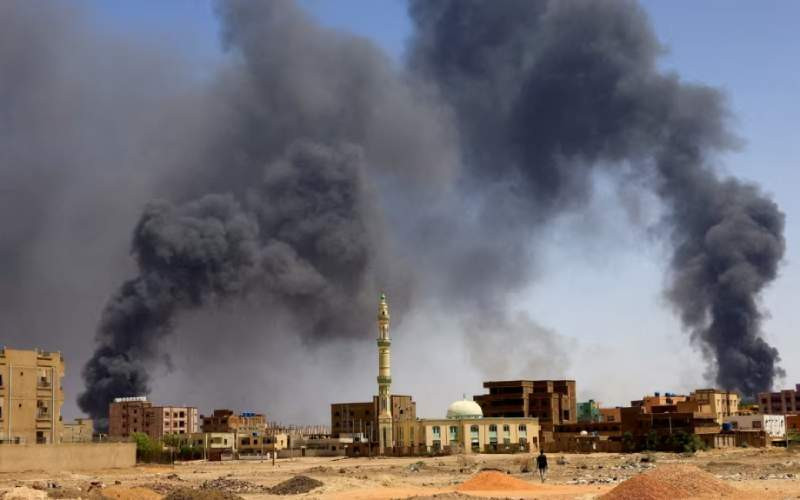×
The Standard e-Paper
Smart Minds Choose Us

Man walks while smoke rises above buildings after aerial bombardment in Khartoum North. [Via VOA]
The United Nation's top envoy in Sudan on Monday welcomed a U.S.-Saudi brokered cease-fire even as he warned that the Sudan conflict shows no sign of slowing down.